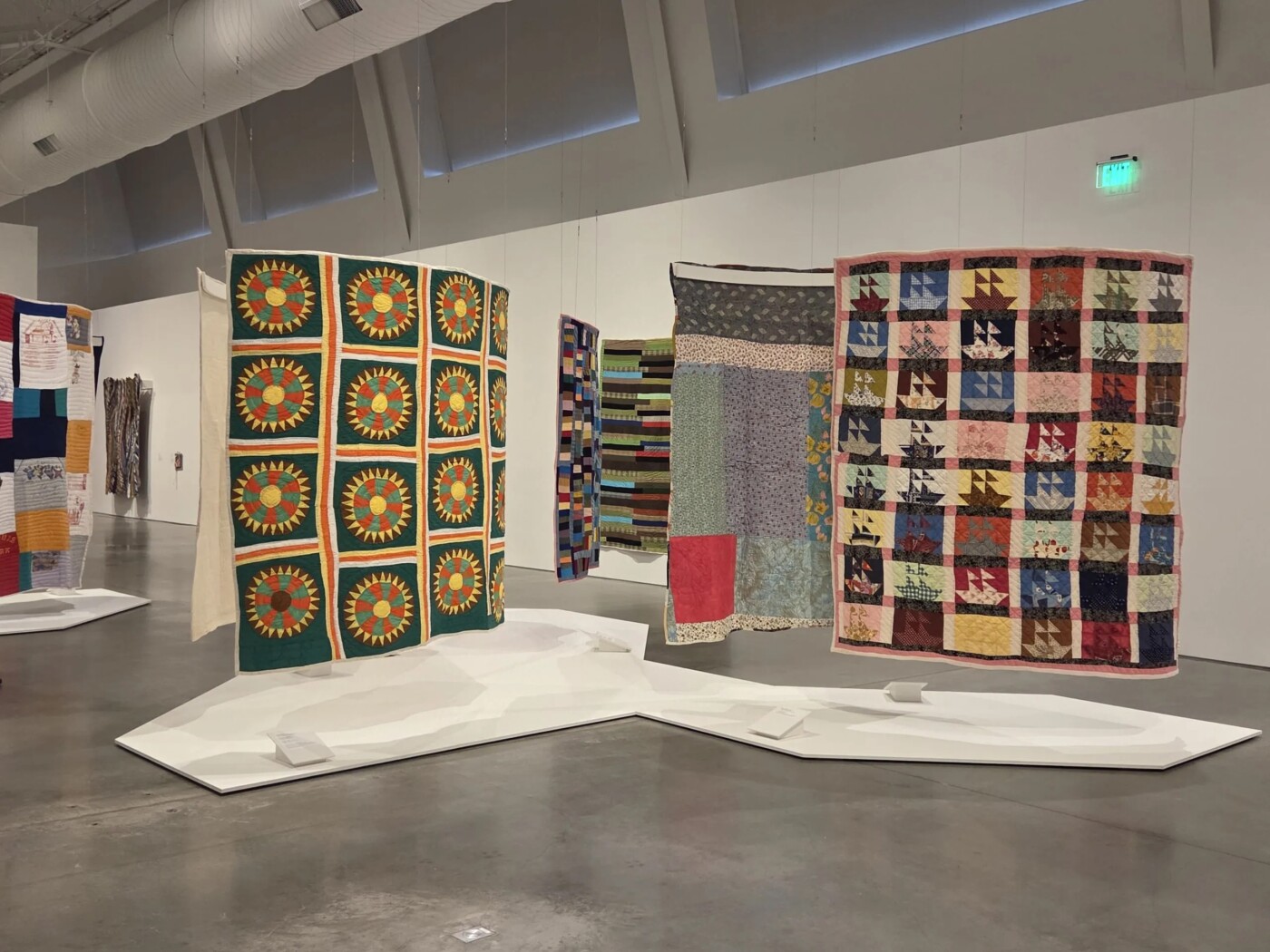More than 100 beautiful, fascinating quilts of widely varied styles made primarily by African American women with Bay Area ties, and many of the stories behind them, comprise a compelling new exhibition at the Berkeley Art Museum and Pacific Film Archive.
“Routed West: Twentieth Century African American Quilts in California,” opening June 8 with a free admission day and running through Nov. 30, 2025, celebrates Black women and their descendants—artists whose work isn’t often in museums, said BAMPFA Executive Director Julie Rodrigues Widholm at a recent preview.
The exhibition comes in the wake of an unprecedented 2020 gift to the museum of some 3,000 quilts from the estate of scholar Eli Leon (the largest private collection of its kind in the world), who spent decades acquiring the works.
Widholm called the exhibition “one of the most ambitious endeavors” in BAMPFA’s history as well as groundbreaking and radical, with a focus that sways away from economic valuation.
BAMPFA Associate Curator Elaine Yau, a folk-art historian heading a team in a multi-year researching, cataloging and conservation project now at its halfway point, said the exhibit’s aim is to “resist the erasure of work by Black women” and “glean something about intangibles” such as nurturing and caring, as well as to illuminate how “intergenerational legacies live on.”
Yau’s efforts include tasks ranging from extensive genealogical research to using telephone directories and cold calling to find the quiltmakers’ families.
Among Yau’s favorites in the show are two by Oakland women: Gerstine Scott’s quilt made of neckties, strictly for its uniqueness, and Alice Neal’s poignant portrait tribute to her mother, Mary Bright.
Nearly 90 quilters are represented in the exhibition, which uniquely includes sample quilt pieces that visitors are encouraged to touch and offers more than simple wall hangings. Some quilts are situated so viewers can see both front and back to truly appreciate the workmanship; and to consider how the quilts are comforting, useful objects meant to be folded and manipulated.
The show is divided into five sections.
“Southern Roots” contains the oldest quilts, made in the early 20th century in segregated Jim Crow South, where slavery’s effects lingered loudly. Many of them are pieced in a traditional manner; many are utilitarian, stitched together from work clothes or other salvaged fabric.
“Carried and Kept” includes quilts that were brought to California from Arkansas, Louisiana, Mississippi, Oklahoma and Texas during the Second Great Migration between 1940 and 1970.
“Tending Generations” features groupings of quilts created by members of different generations of the same family; while “Rooted West” has quilts dating between 1970 and 2000, when their makers, retired from daily work (as teachers, midwives, nurses, clerks and in shipyard), enjoyed creativity and found sustenance and camaraderie in quilting.
“A Living Tradition” includes contemporary pieces made since 1980 by younger quiltmakers working in local guilds; some were submitted in response to an open call. These quilts are distinctive for their smaller size and overtly political and social justice themes.
Related “Routed West” programming includes tours led by folklore, history of art and African American studies graduate students at 12:15 p.m. Wednesdays, 2 p.m. Sundays and at 1:15 p.m. on Free First Thursdays. Yau leads tours, telling stories of individual quilts, at 2 p.m. June 22 and 1:15 p.m. July 3. Family art-making sessions are on June 8, June 14, June 29, July 12, July 27 and Aug. 31.
“Routed West: Twentieth Century African American Quilts in California” continues through Nov. 30, 2025 at Berkeley Art Museum and Pacific Film Archive, 2155 Center St., Berkeley. Tickets are $14 general, free for ages 18 and under at bampfa.org.
The post Berkeley Art Museum spotlights, shares legacies of African American women quilters appeared first on Local News Matters.






